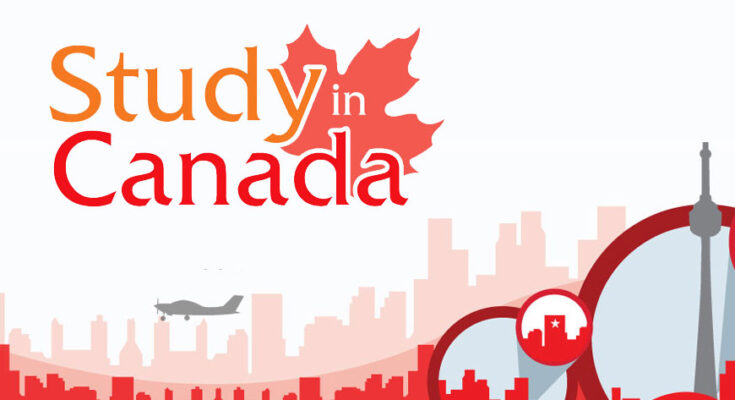Canada is a dream destination for many international students and workers. Known for its top-notch education system, diverse job opportunities, and high quality of life, it’s no wonder Canada attracts thousands of ambitious individuals every year.
Whether you’re planning to pursue higher education or seeking employment, Canada offers a pathway to help you achieve your goals.
In this guide, we’ll walk you through everything you need to know about studying and working in Canada.
Understanding Canada’s Education and Work Opportunities
Benefits of Studying in Canada
Canada is home to some of the best universities and colleges in the world. These institutions offer internationally recognized degrees and diplomas in various fields, from engineering and medicine to business and the arts. One of the most significant advantages of studying in Canada is the multicultural environment, which provides students with a global perspective and networking opportunities. Additionally, Canadian universities emphasize research and innovation, giving students a chance to work on cutting-edge projects.
Moreover, Canada is known for its affordability compared to other countries like the US or the UK. International students also benefit from scholarships and financial aid programs, making higher education more accessible.
Work Opportunities for International Students
Canada allows international students to work part-time during their studies and full-time during breaks, providing them with valuable work experience and the ability to support themselves financially. After completing their studies, students can apply for the Post-Graduation Work Permit (PGWP), which allows them to gain work experience in Canada for up to three years. This work experience is often a stepping stone toward permanent residency.
Step-by-Step Process to Study in Canada
Choosing the Right University and Program
The first step to studying in Canada is selecting the right university and program. Research institutions that offer courses aligning with your career goals. Canada is known for its programs in healthcare, technology, business, and engineering. Consider factors such as tuition fees, location, campus facilities, and student reviews when making your decision.
Applying for Admission
Once you’ve chosen a program, it’s time to apply for admission. Most Canadian universities have online application portals. You’ll need to provide academic transcripts, proof of English or French language proficiency (such as IELTS or TOEFL scores), a statement of purpose, and letters of recommendation. Be sure to check the application deadlines, as they vary depending on the institution.
Obtaining a Study Permit
A study permit is a must for international students. To apply, you need an acceptance letter from a Designated Learning Institution (DLI), proof of sufficient funds to cover tuition and living expenses, and a valid passport. Submit your application online or at a Canadian embassy in your country. Processing times vary, so it’s best to apply early.
Preparing for Arrival
Before you arrive in Canada, plan your finances carefully. Budget for tuition, rent, food, transportation, and other expenses. Look into accommodation options like on-campus housing, shared apartments, or homestays. Don’t forget to pack essentials, including weather-appropriate clothing for Canada’s chilly winters.
Working While Studying in Canada
Rules for International Students
International students are allowed to work up to 20 hours per week during the academic semester and full-time during scheduled breaks like summer holidays. Jobs can be on-campus or off-campus, but students must ensure their study permits include a work condition.
Popular Part-Time Jobs for Students
Some of the most common part-time jobs for students include working in retail, restaurants, call centers, and tutoring. These jobs not only help students earn money but also improve their communication and professional skills. On average, students can earn between CAD 14 and CAD 20 per hour, depending on the job and location.
Transitioning from Study to Work
Post-Graduation Work Permit (PGWP)
One of the most attractive benefits of studying in Canada is the Post-Graduation Work Permit (PGWP). This program allows international graduates to work in Canada after completing their studies. The PGWP is an open work permit, meaning you can work for any employer, in any industry, without needing a job offer in advance.
To be eligible, you must graduate from a Designated Learning Institution (DLI) and apply for the PGWP within 180 days of receiving confirmation that you’ve completed your program. The length of the permit depends on the duration of your studies. For example, if your program was two years long, you may be eligible for a three-year work permit.
Applying for the PGWP is straightforward. You’ll need documents like your passport, study permit, and proof of graduation (such as a transcript or degree certificate). This permit not only helps you gain valuable work experience but also strengthens your eligibility for permanent residency through programs like Express Entry.
Building a Career in Canada
After obtaining your PGWP, it’s time to focus on building a career. Networking is a powerful tool in Canada’s job market. Attend job fairs, connect with professionals on LinkedIn, and make use of university career centers to discover opportunities. Many Canadian universities offer co-op programs, which integrate work placements into academic studies, giving students a head start in their careers.
Additionally, employers in Canada value soft skills such as communication, teamwork, and adaptability. Tailor your resume to highlight these attributes alongside your technical expertise. Be patient and persistent in your job search, and don’t hesitate to reach out for guidance from mentors or alumni networks.
Challenges and Tips for Success
Common Challenges Faced by International Students
Moving to a new country is exciting but comes with its own set of challenges. For many students, homesickness can be a significant hurdle. Being far away from family and friends can feel isolating, especially during festive seasons. Cultural differences and language barriers can also make it difficult to adapt initially.
Another challenge is managing finances. The cost of living in major Canadian cities like Toronto or Vancouver can be high, and balancing work and studies can be overwhelming. Navigating a new education system and work culture may also take time and effort.
Tips to Manage Studies and Work
To overcome these challenges, time management is crucial. Create a schedule that prioritizes your studies while allocating enough time for work and relaxation. Use tools like planners or mobile apps to stay organized. If you’re struggling academically or emotionally, most Canadian institutions offer support services, including counseling, tutoring, and workshops.
Building a support network can also make a big difference. Join student clubs, participate in community events, or volunteer for local organizations. These activities not only help you make friends but also enrich your Canadian experience. Remember, asking for help is a sign of strength, not weakness.
Immigration Pathways for Students and Workers
Permanent Residency Options
Canada has several immigration programs that make it easier for international students and workers to transition to permanent residency. The Express Entry system is one of the most popular pathways. It’s a points-based system that evaluates candidates based on factors like age, education, work experience, and language skills.
Another option is the Provincial Nominee Program (PNP). Each province in Canada has its own set of criteria to nominate individuals for permanent residency based on local labor market needs. If you’ve studied or worked in a specific province, you may have an advantage in the PNP application process.
Becoming a Canadian Citizen
After obtaining permanent residency, you can eventually apply for Canadian citizenship. To be eligible, you need to have lived in Canada for at least three out of the last five years as a permanent resident. You’ll also need to demonstrate proficiency in English or French and pass a citizenship test covering Canada’s history, values, and political system. Citizenship not only provides security but also allows you to enjoy additional rights, such as voting in elections.
FAQs about How to Study and Work in Canada
1. Can international students work full-time during school breaks in Canada?
Yes, international students can work full-time during scheduled school breaks, such as summer or winter holidays, as long as their study permit allows it.
2. How much does it cost to study in Canada?
Tuition fees vary depending on the program and university, but international students typically pay between CAD 15,000 and CAD 30,000 per year. Additional expenses include housing, food, and transportation.
3. What are the eligibility requirements for a study permit?
To be eligible, you need an acceptance letter from a Designated Learning Institution (DLI), proof of financial support, a valid passport, and no criminal record. You may also need to provide language proficiency test scores.
4. How long does it take to get a post-graduation work permit?
The processing time for a PGWP varies but usually takes between 2 and 6 months. It’s best to apply as soon as you receive proof of graduation.
5. Can I apply for permanent residency directly after graduation?
Yes, through programs like Express Entry or the Provincial Nominee Program (PNP), you can apply for permanent residency after gaining relevant work experience in Canada.
Conclusion
Canada is more than just a place to study or work—it’s a land of opportunity that can shape your future in countless ways. From world-class education to a thriving job market and a clear pathway to permanent residency, Canada offers a supportive environment for international students and workers. While challenges may arise, the rewards far outweigh them. So, take the leap, start planning, and make your Canadian dream a reality.



